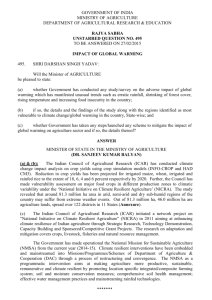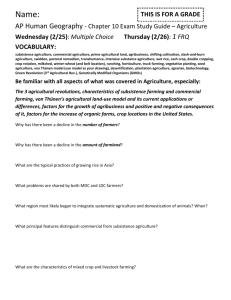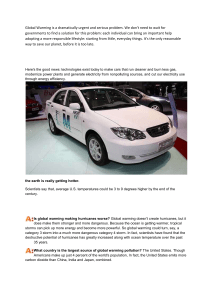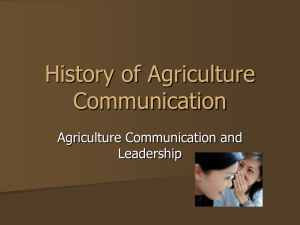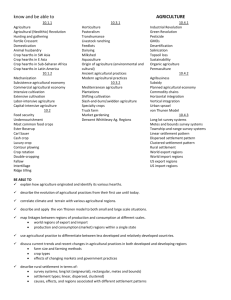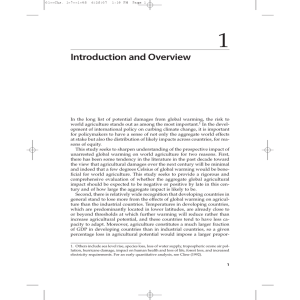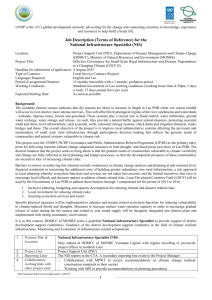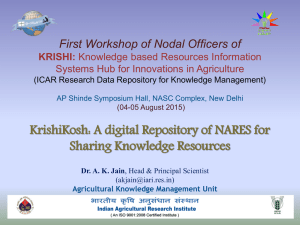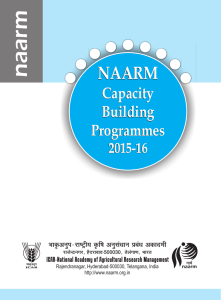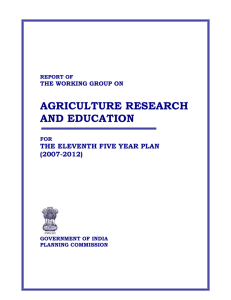ADVERSE IMPACT OF GLOBAL WARMING CLIMATE CHANGE ON
advertisement
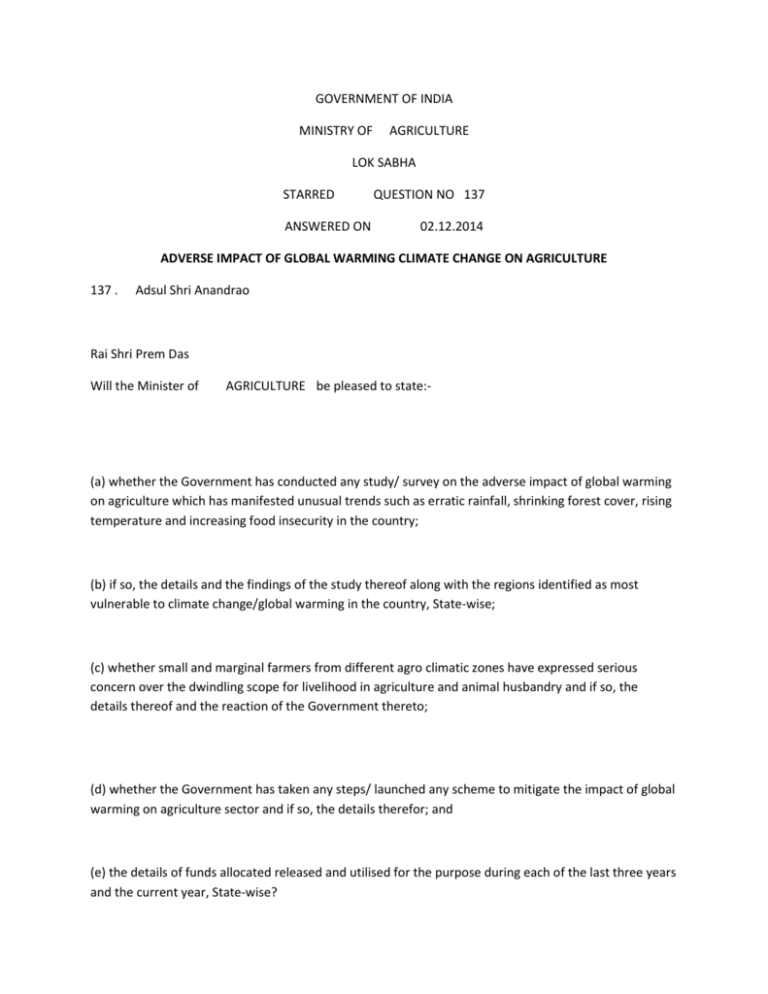
GOVERNMENT OF INDIA MINISTRY OF AGRICULTURE LOK SABHA STARRED ANSWERED ON QUESTION NO 137 02.12.2014 ADVERSE IMPACT OF GLOBAL WARMING CLIMATE CHANGE ON AGRICULTURE 137 . Adsul Shri Anandrao Rai Shri Prem Das Will the Minister of AGRICULTURE be pleased to state:- (a) whether the Government has conducted any study/ survey on the adverse impact of global warming on agriculture which has manifested unusual trends such as erratic rainfall, shrinking forest cover, rising temperature and increasing food insecurity in the country; (b) if so, the details and the findings of the study thereof along with the regions identified as most vulnerable to climate change/global warming in the country, State-wise; (c) whether small and marginal farmers from different agro climatic zones have expressed serious concern over the dwindling scope for livelihood in agriculture and animal husbandry and if so, the details thereof and the reaction of the Government thereto; (d) whether the Government has taken any steps/ launched any scheme to mitigate the impact of global warming on agriculture sector and if so, the details therefor; and (e) the details of funds allocated released and utilised for the purpose during each of the last three years and the current year, State-wise? ANSWER THE MINISTER OF AGRICULTURE (SHRI RADHA MOHAN SINGH) (a) to (e): A Statement is laid on the Table of the House. STATEMENT IN RESPECT OF PARTS (a) to (e) OF LOK SABHA STARRED QUESTION NO. 137 TO BE ANSWERED ON 02/12/2014 REGARDING “ADVERSE IMPACT OF GLOBAL WARMING/CLIMATE CHANGE ON AGRICULTURE” (a) & (b): The Indian Council of Agricultural Research (ICAR) has conducted climate change impact analysis on crop yields using crop simulation models (INFO-CROP and HAD CM3). Reduction in crop yields has been projected for irrigated maize, wheat, irrigated and rainfed rice to the extent of 18, 6, 4 and 6 percent respectively by 2020. Further, the Council has made vulnerability assessment on major food crops in different production zones to climatic variability under the ‘National Initiative on Climate Resilient Agriculture’ (NICRA). The study revealed that around 81.3 million ha area in arid, semi- arid and dry sub-humid regions of the country may suffer from extreme weather events. Out of 81.3 million ha, 46.0 million ha are agriculture lands, spread over 122 districts in 11 States (Annexure-I). (c) Yes, Madam. Uncertain and erratic rainfall, delay in onset of monsoon, agricultural droughts, excess rainfall events and other extreme weather events during crop growing seasons may affect agricultural productivity and profitability of the farming community including small and marginal farmers. The Indian Council of Agricultural Research (ICAR) in association with State Agriculture Universities and concerned state departments has developed agricultural contingency plans of 580 districts, which are available on the farmers’ portal (http://www.farmer.gov.in). Interface meetings with various state departments have been organized to enable them in preparing action plans for operationalization of contingent plans. Further, contingency measures have been demonstrated in farmers’ fields in 100 villages under NICRA (National Initiative on Climate Resilient Agriculture). (d) & (e): The Indian Council of Agricultural Research (ICAR) initiated a network project on “National Initiative on Climate Resilient Agriculture” (NICRA) in 2011 aiming at enhancing climate resilience of Indian agriculture through Strategic Research, Technology Demonstration, Capacity Building and Sponsored/Competitive Grant Projects. The research on adaptation and mitigation covers crops, livestock, fisheries and natural resource management. The funds allocated and releases made during the last three years and the current year (2014-15) are given in Annexure-II. The Government has made operational the National Mission for Sustainable Agriculture (NMSA) from the current year (2014-15). Climate resilient interventions have been embedded and mainstreamed into Missions/ Programmes/ Schemes of Dept. of Agriculture & Cooperation (DAC) through a process of restructuring and convergence. The NMSA as a programmatic intervention aims at making agriculture more productive, sustainable, remunerative and climate resilient by promoting location specific integrated/composite farming system; soil and moisture conservation measures; comprehensive soil health management; effective water management practices and mainstreaming rainfed technologies. The funds allocated and releases made during the current year (2014-15) are available in Annexure-III. ANNEXURE
